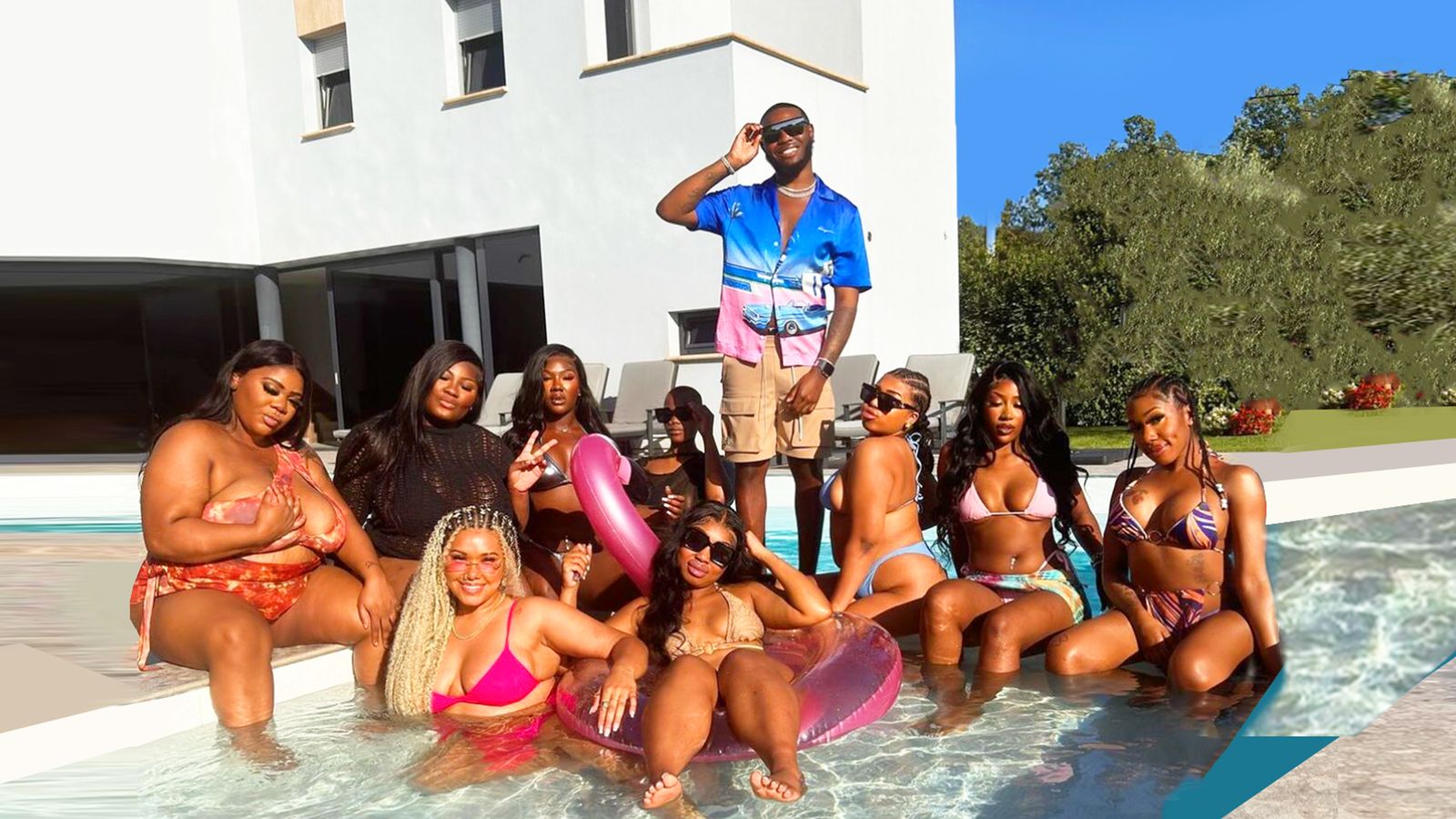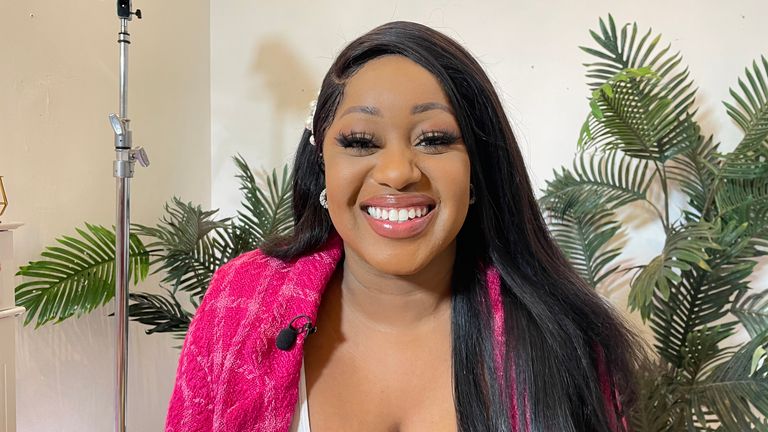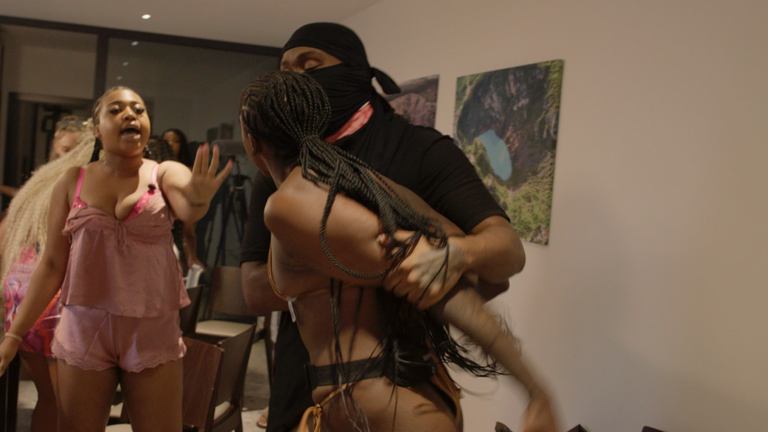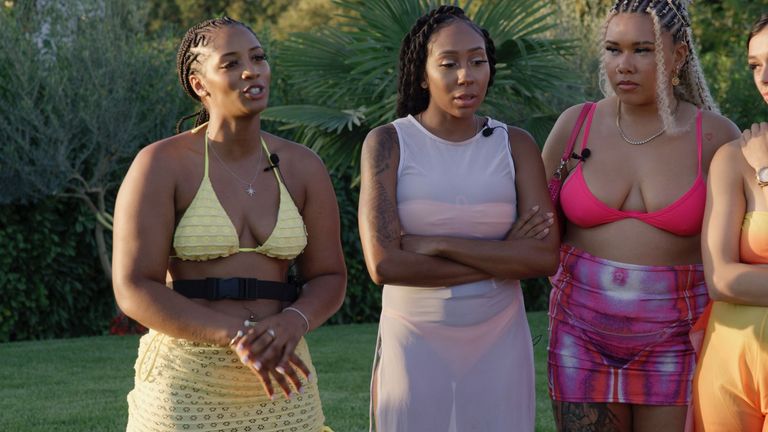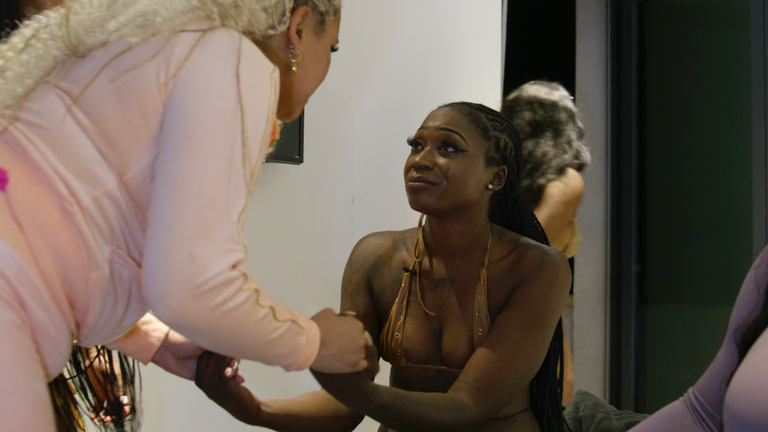Badderz UK is an online reality show in which contestants are encouraged to drink, fight and generally behave badly.
It’s quickly gone viral, raking up almost 100,000 views in less than a week.
It is – as its executive producer Lani Good admits – unashamedly “extreme”. Were it to be on TV, without question she says “it would be watered down”.
While UK broadcasters would be criticised for not protecting participants were they to air a similar show on TV, on the internet, the same duty of care rules don’t apply.
“I feel like TV needs to take a chill pill, we’re just trying to have to have a laugh… the [contestants] were dying to do it, they literally want the drama,” Ms Good insists.
On terrestrial television, reality ratings have experienced something of a slump in recent years, so has the future of the genre moved online where environments are more raw and less controlled?
TV producers are “out of touch”, Ms Good insists, adding the majority of young people think “reality TV is pants”.
“I didn’t want to wait for opportunities to come my way,” the Youtuber-turned-TV producer told Sky News. “I thought I’ve got a bit of money, I’ll do it myself.”
That money was in fact her share of winnings from appearing on the Channel 4 reality show Tempting Fortune almost a year ago now.
Read more from Sky News:
Margot Robbie breaks silence on Oscars Barbie snub
Artefacts to go on display after being stolen from British Museum
Alec Baldwin pleads not guilty to involuntary manslaughter in Rust shooting
One of the most ‘hated people on TV’
If her name doesn’t ring a bell, then you might perhaps remember her from briefly being one of the most “hated people on TV”, as she puts it.
The premise of the Paddy McGuinness show saw 12 strangers take part in an 18-day-long trek, the goal being not to give in to the temptations of home comforts en route, which would see money taken out of the shared prize pot at the end.
Ms Good happily blew the group’s cash pot on a £900 hot chocolate, then a £500 milkshake. As her teammates lost it with her, in reality terms, it was TV gold.
Afterwards, she says trolls tried to get her sacked from her day job as a graphic designer. The criticism was brutal, which is why she maintains she’s better placed to fully prepare contestants on her own self-funded show.
Warnings about trolling
She maintains on her show she gave contestants “a level of transparency” she never experienced when she appeared on reality TV about the level of trolling they could potentially receive.
“Mainstream TV and broadcasters, when they do their duty of care beforehand, I think they do what they need to do so they don’t get sued,” she says. “I don’t believe they really care. They don’t ever fully prepare you for what you can go through.”
While she admits she’s setting out to get clicks, she doesn’t believe she’s exploiting her young stars, who are happy to be shown screaming and fighting.
“It’s an exchange, I believe,” she says. “I benefit obviously because I’m a producer, I gain the profit, but… young people in this day and age want to be popular, if you don’t have a thousand likes in your picture who are you? You’re nobody.
“That’s what young people care about these days, that’s not my fault… and I’ve given it to them, that’s priceless, it’s not easy to get clout.”
Tightening protections for participants
Traditional broadcasters are now obliged to follow Ofcom-dictated regulations to protect the mental and physical well-being of contestants, but the media regulator has little control over content creation online.
Developmental psychologist and filmmaker Professor John Oates says it isn’t a level playing field.
“It’s totally unbalanced because in the last few years protections for participants – and to some extent crews – has really been tightened up in terms of protecting wellbeing,” he says.
“[Online] it’s the wild west, you can do what you like on social media as long as you don’t put up illegal content, basically as long as you don’t put up pornography or incitement to terrorism primarily.”
Are online viral shows even more problematic?
While broadcasters may claim to take the moral high ground now, it wasn’t too long ago that even on mainstream TV, on shows like the original Channel 4 Big Brother, contestants would depart to baying mobs, whipped into a frenzy with seemingly little thought given as to how they’d cope with such a reception when they were alone in the real world.
Only after Love Island and the deaths of Mike Thalassitis and Sophie Gradon were rules around protecting contestants scrutinised.
Of course, the ITV dating show has had to navigate countless complaints over the years – from sexism and ageism to racism over how black contestants are frequently picked last when it comes to coupling up. But are the quick-to-go-viral alternatives online even more problematic if they look like Badderz?
Shows ‘feed into the stereotype’
TV presenter and social commentator Zeze Millz hates the message it sends out.
“Being a black woman, we already have a stereotype of being aggressive or having a chip on our shoulder,” she tells Sky News.
“I feel like shows like this when fighting and discourse is the main premise of it, is never going to work in our favour, will never make us look good, and in fact just feeds into the stereotype.”
A concern for Millz is that while the show’s rebellious contestants might be enjoying a boost in followers now, they’re not taking a step back to think about the potential future harm it might do.
“You’ve got that digital footprint… and literally you’re dragging girls across the floor,” she says.
On her YouTube show, Ms Millz makes the point that “young people can do better”.
“The culture that we’re in at the moment, being a TikTok star, being a viral star, is probably more appealing to young people right now than getting a normal nine to five,” she says.
“They really believe ‘I’m going to go viral… and then I’m going to get a deal, then I’m going to get loads of money… I don’t care about my job’. Because I’m in their head, they think that they’ve already got to that point where they don’t even need a job.”
It is a genre that’s all too easily dismissed as harmless trash TV but could the reality be that what we’re watching matters more than we might realise?

